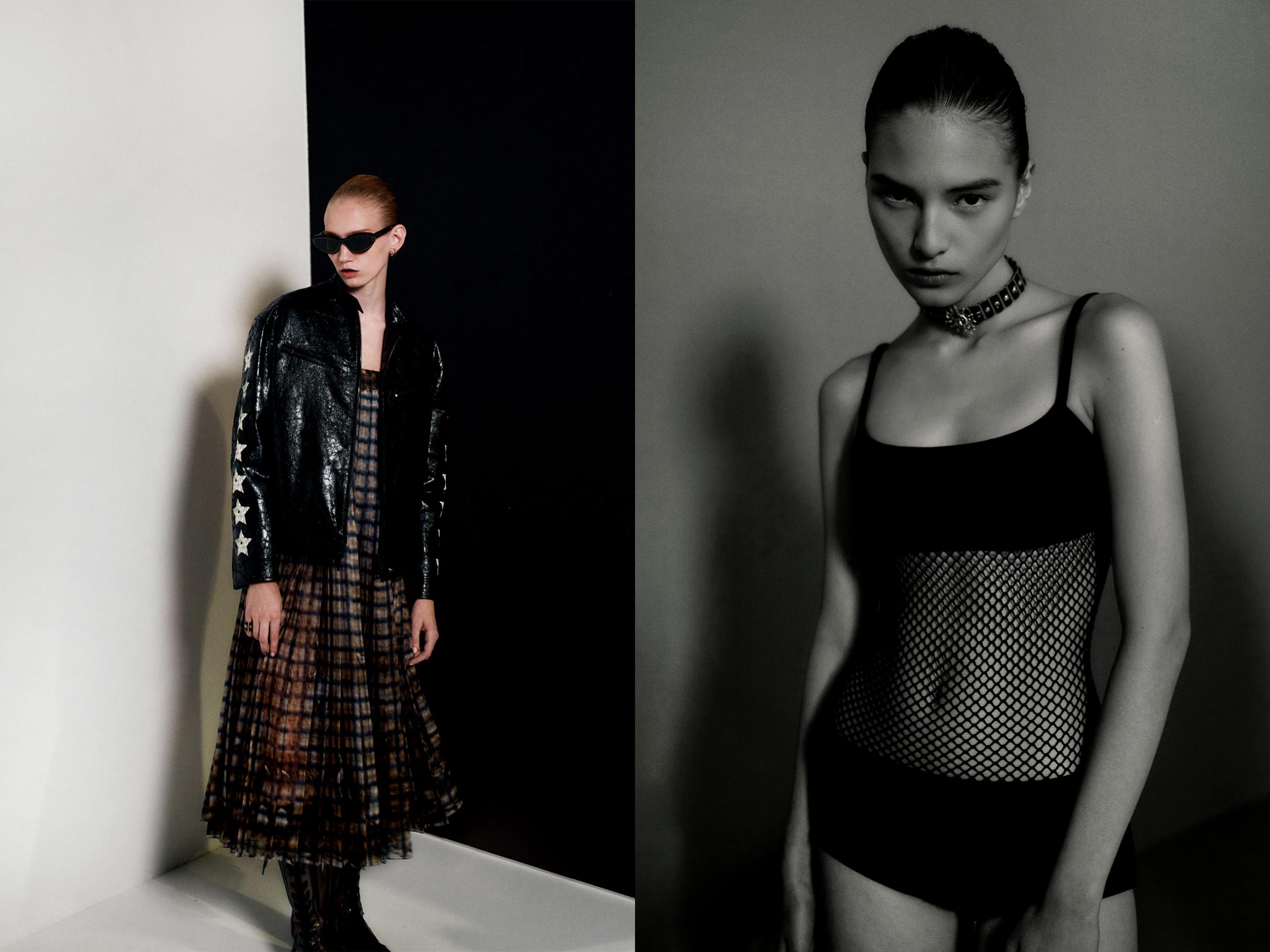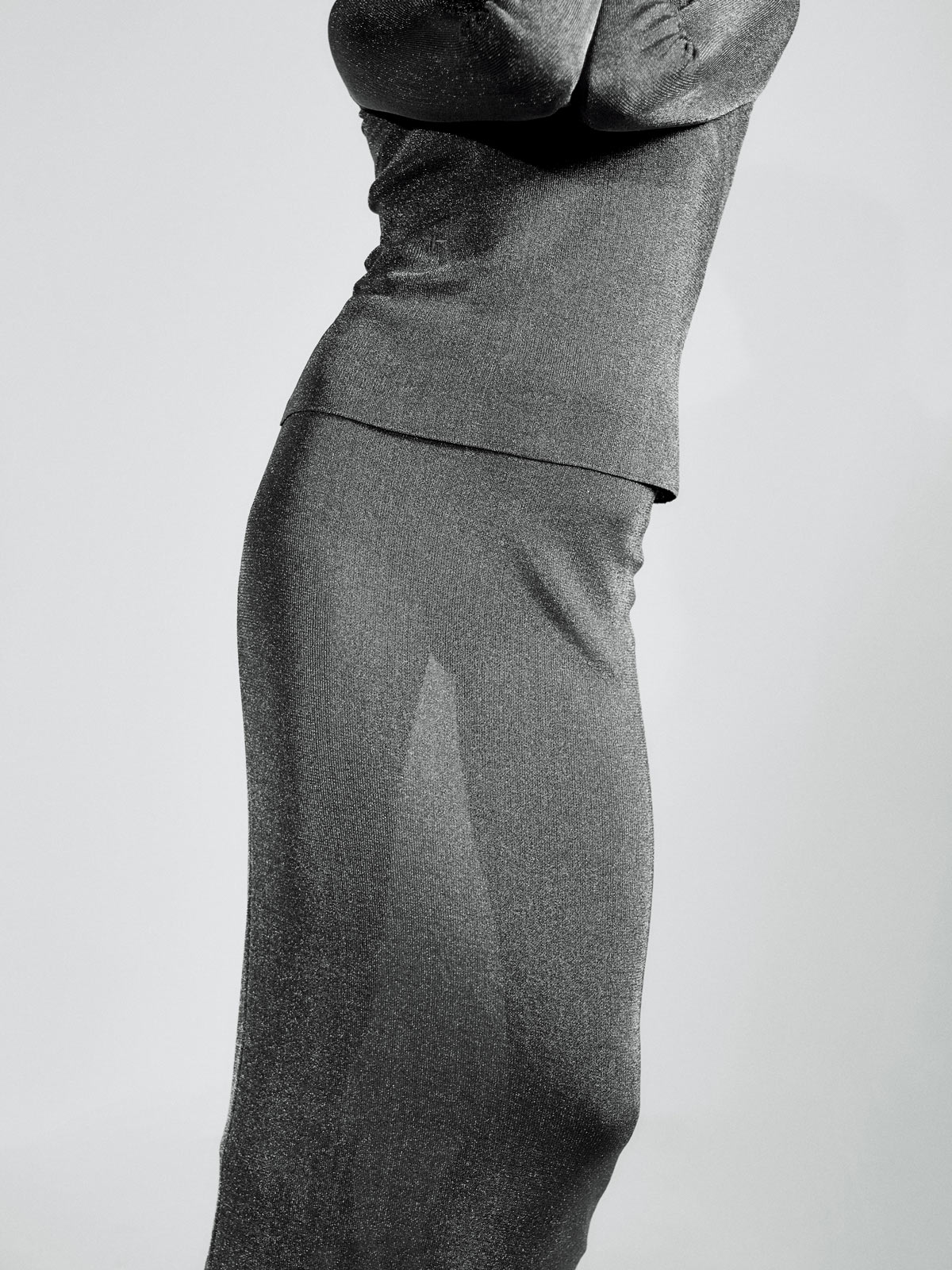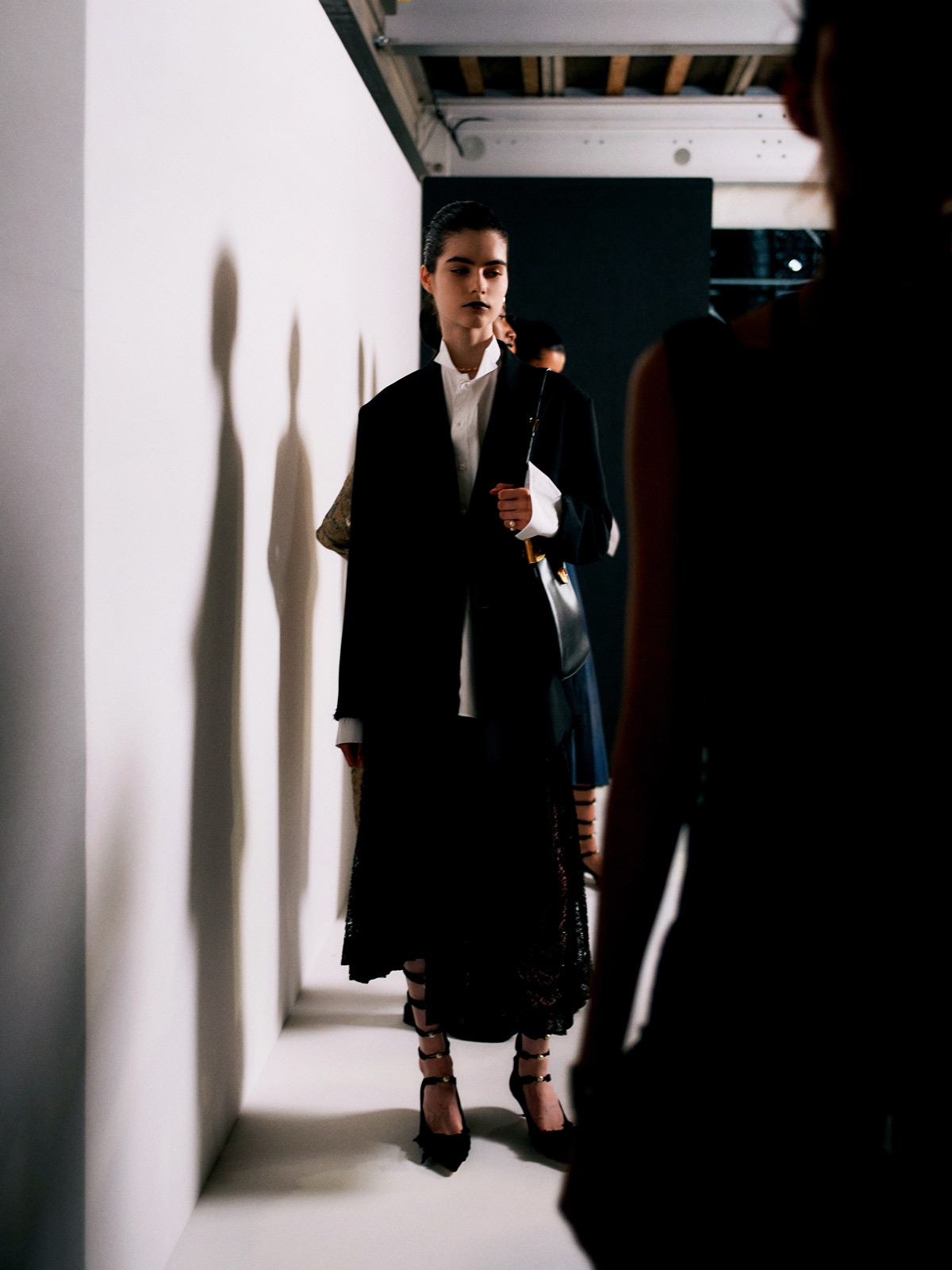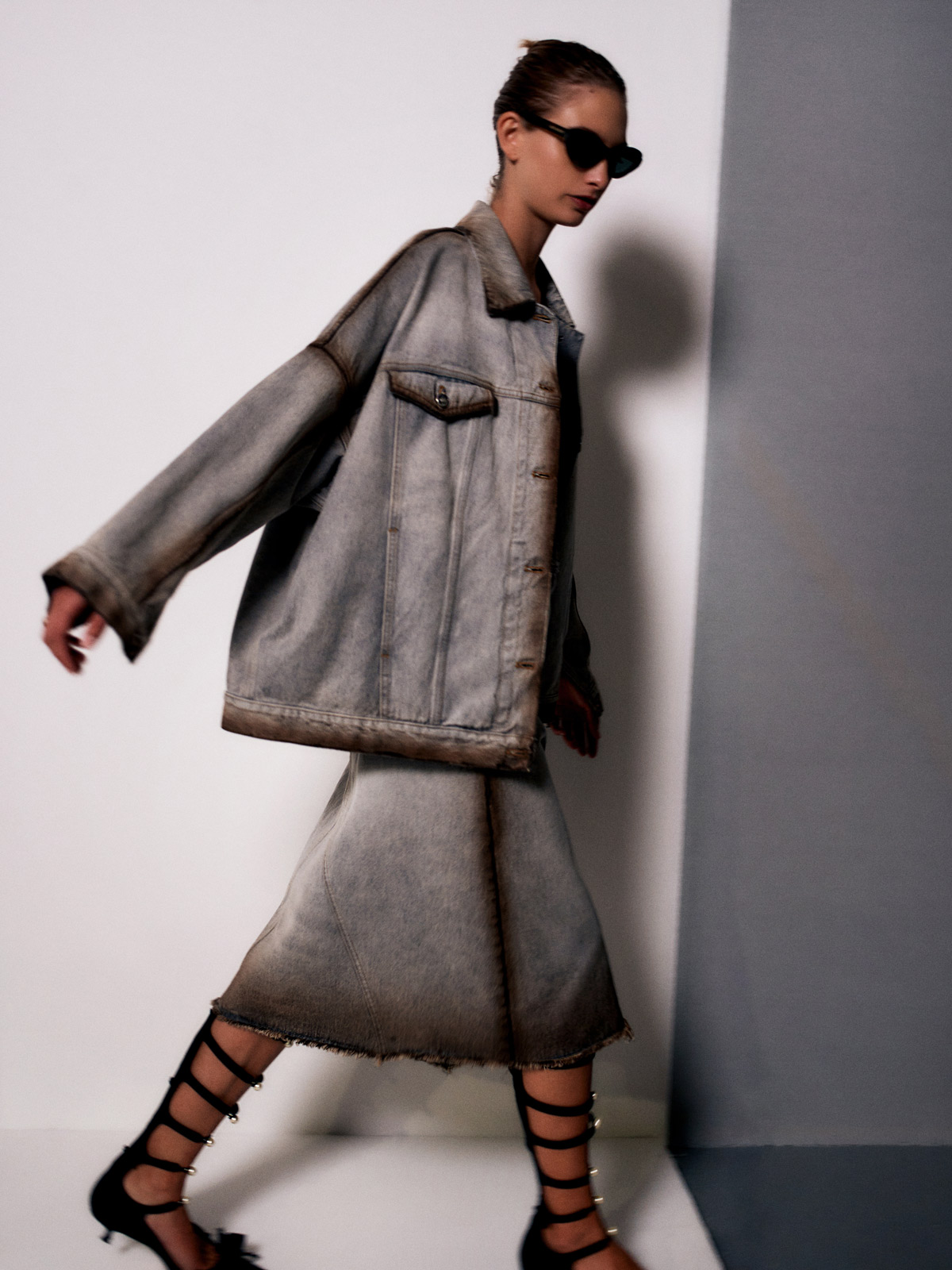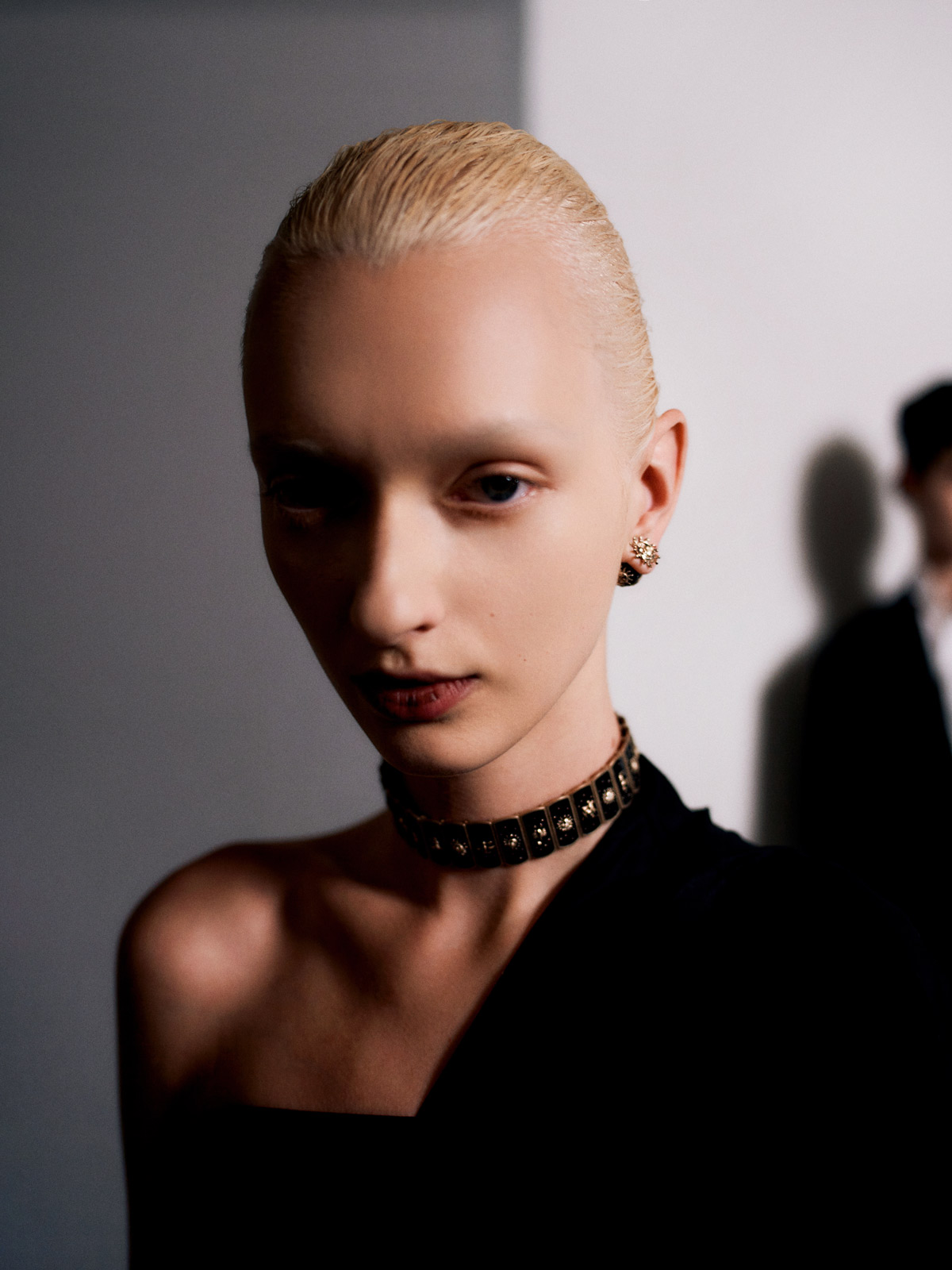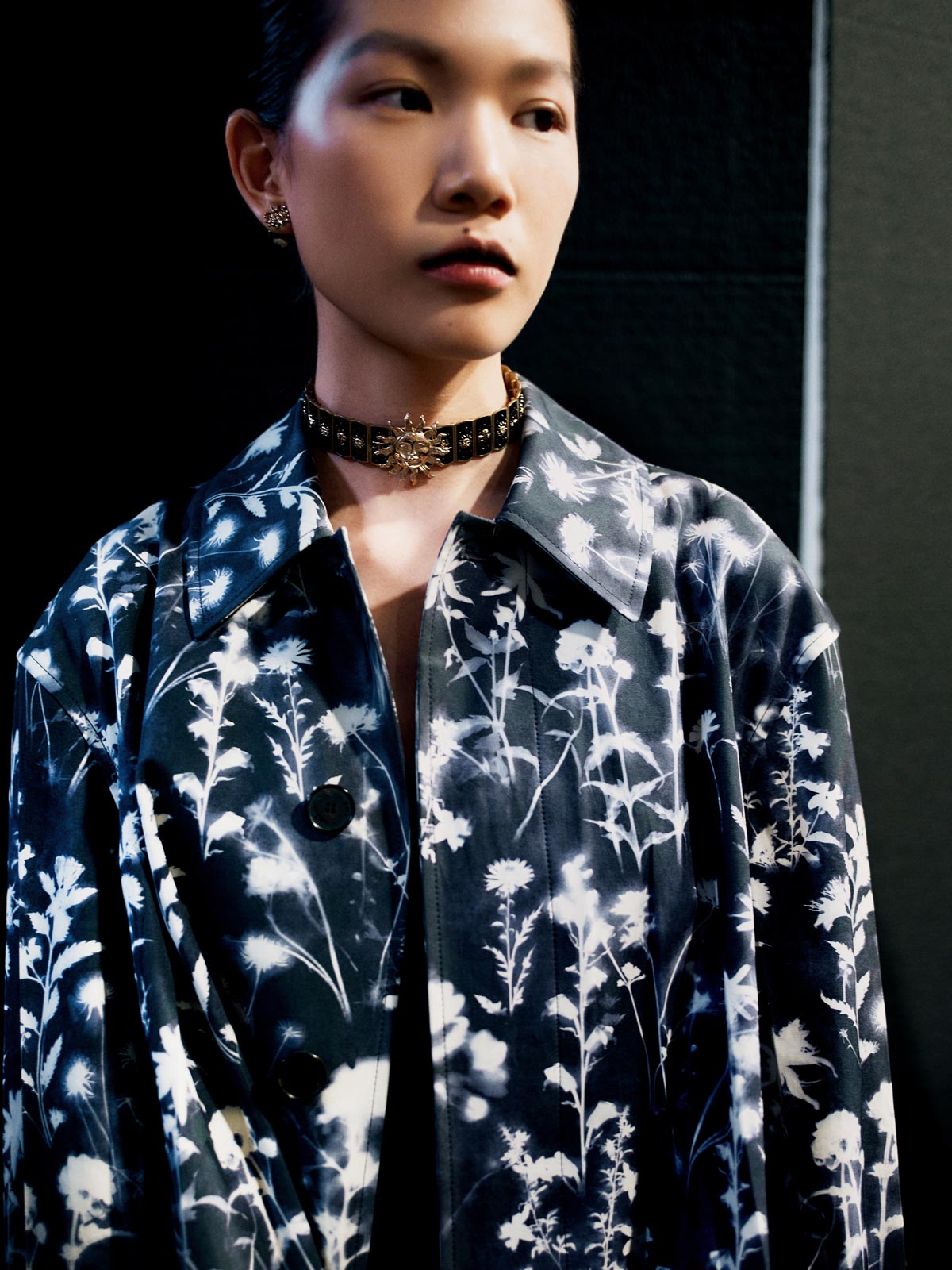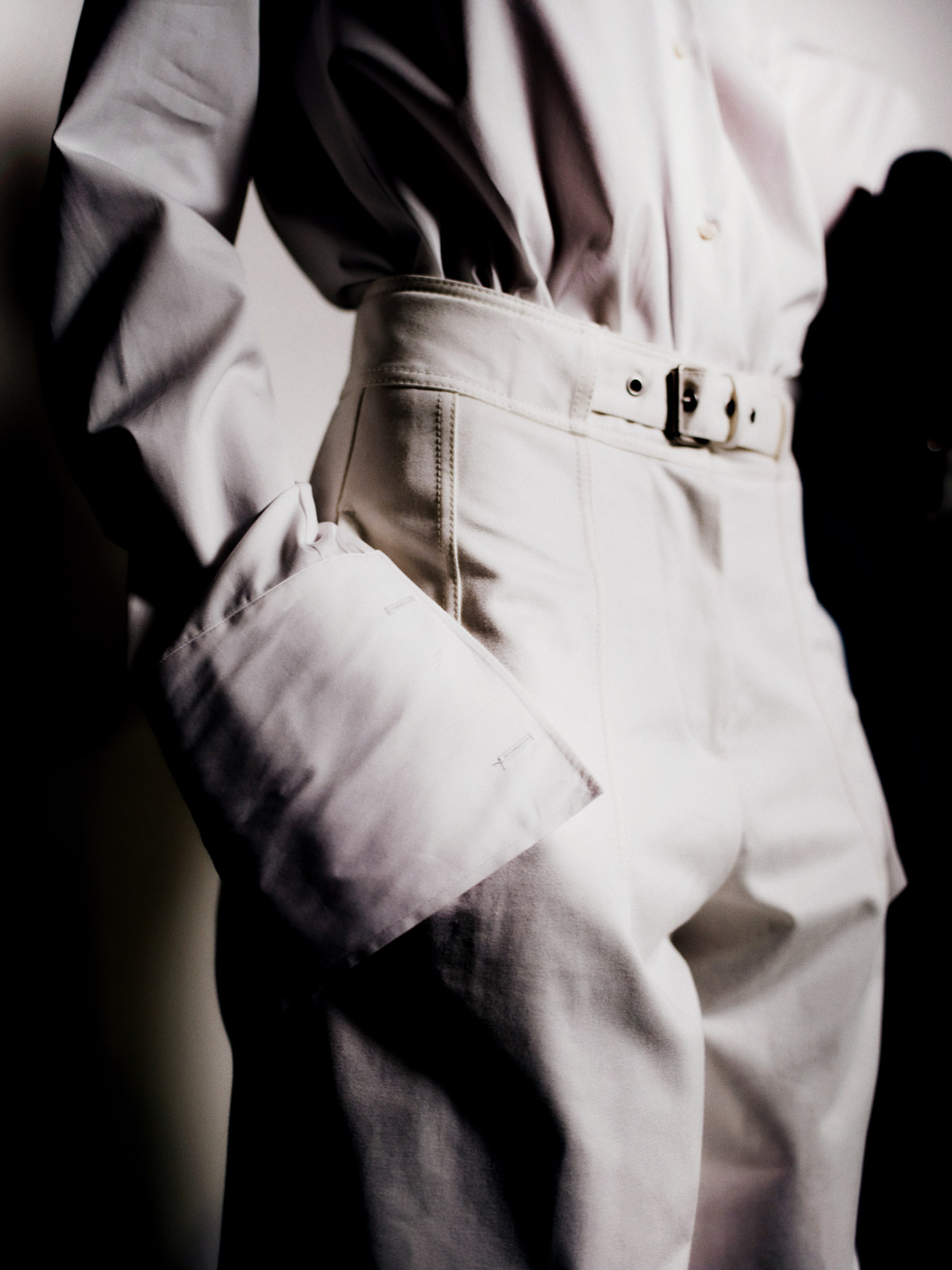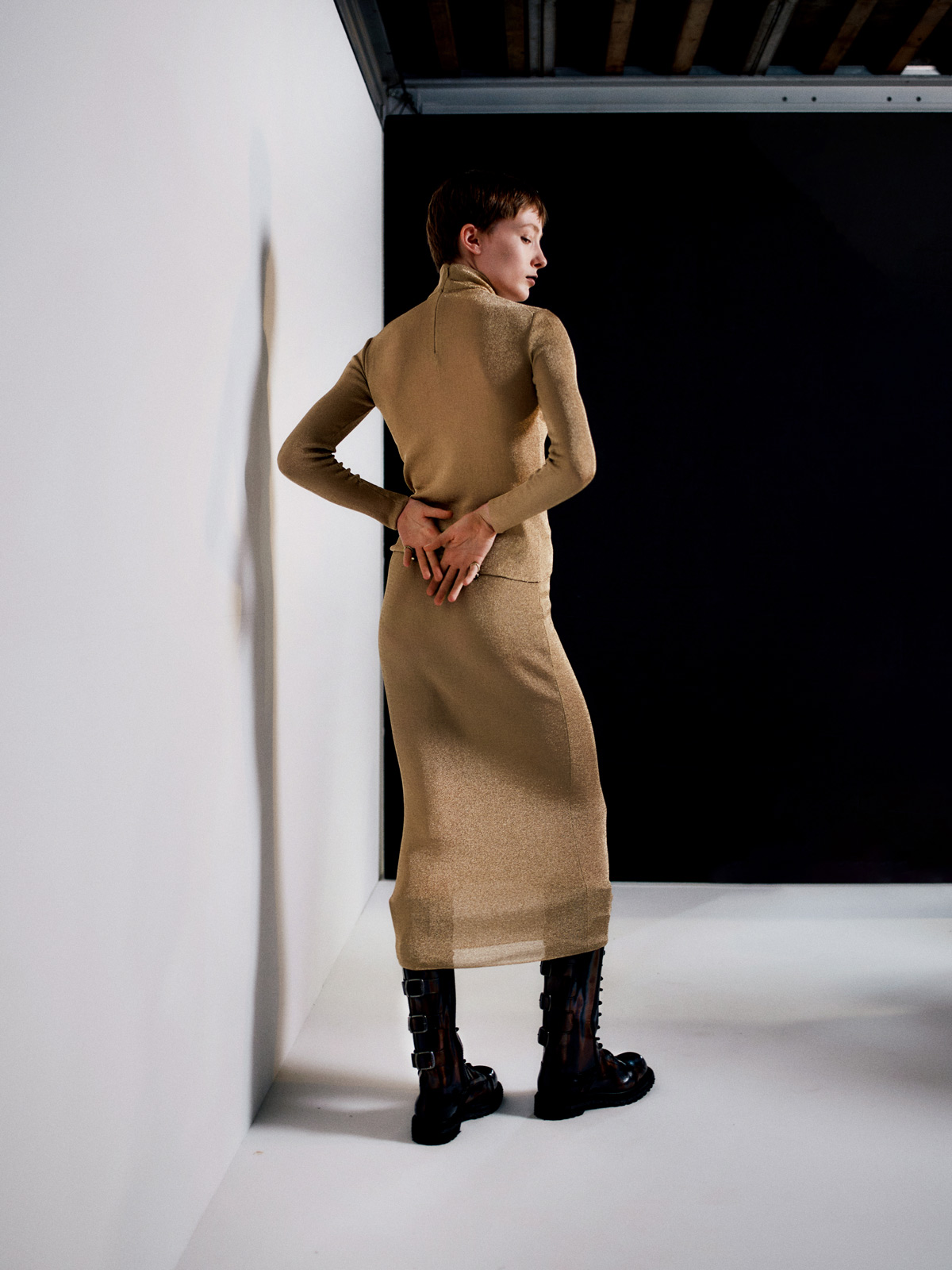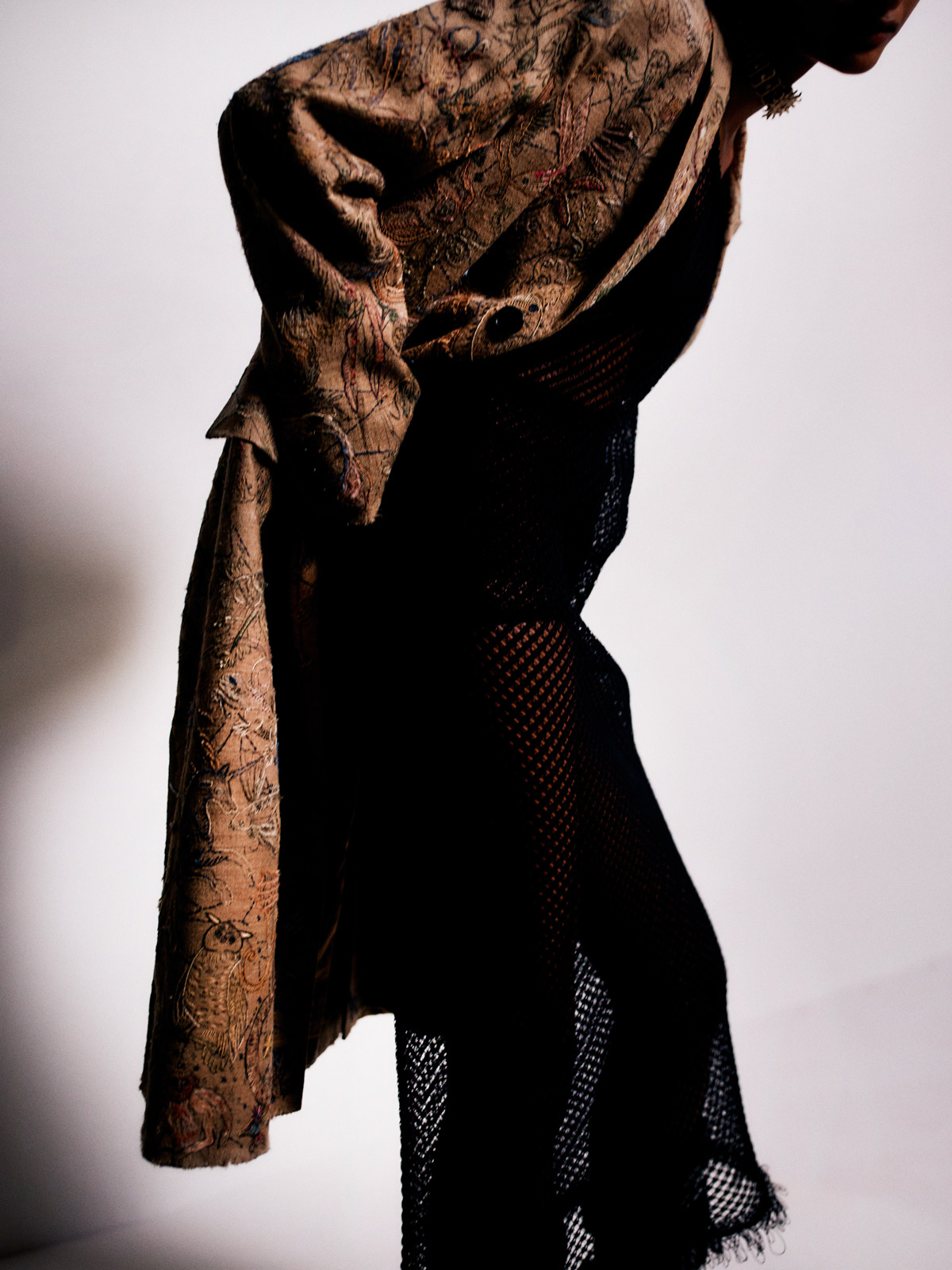Maria Grazia Chiuri’s Spring/Summer 2024 presentation teased out the bond between femininity and feminism, lending house signatures a darker edge
Maria Grazia Chiuri is a punk. No, she doesn’t stick safety pins through her cheeks, nor does she have a haircut best-described as violent. But she’s invested in the act of rebellion, and how it’s embodied by women—specifically, the Dior woman. The creative director’s take on the luxury house’s codes might be understood as an exploration of the “relationship between femininity and feminism”—an important distinction, teased out via this season’s intelligent characterization of herstory.
This collection found the proverbial devil in its details, and made him into a divine feminine witch. Black knit separates revealed small lacerations, like a cat’s eye, and a boxy denim jacket-skirt combo was singed at the cuffs and hems. Signature silhouettes took on a darker edge: classic high-waisted panties and bralettes peeked through French lace dresses, decorated with medieval sun and moon motifs. Oxford shirts were tailored as though models failed to slip their right arms through the sleeve, creating a half-strapless, half-buttoned-up interpretation of Chiuri’s own uniform—wide-leg black trousers and a crisp white dress shirt.
The catwalk itself was accented with an immersive art piece by Elena Bellantoni, titled NOT HER. The wall-to-wall video installation presented sexist advertisements on how women might hold the attention of men—literally and figuratively highlighting the show’s feminist agenda, with neon yellow and fuschia animations flashing around the venue between segments.
In a press release, Dior lays out this season’s focus—to understand and outfit the female rebel as a connecting point between society’s past and future. Between Barbie and GirlTok, the world has gotten significantly pinker in the past year; all the while, women’s rights are gradually bulldozed. This is the irony presented on Chiuri’s runway—a coven of scorned women finding power in a brightly-colored room that’s trying to pacify them. Punk is not dead, but rather reinterpreted in Chiuri’s girls-first language.


